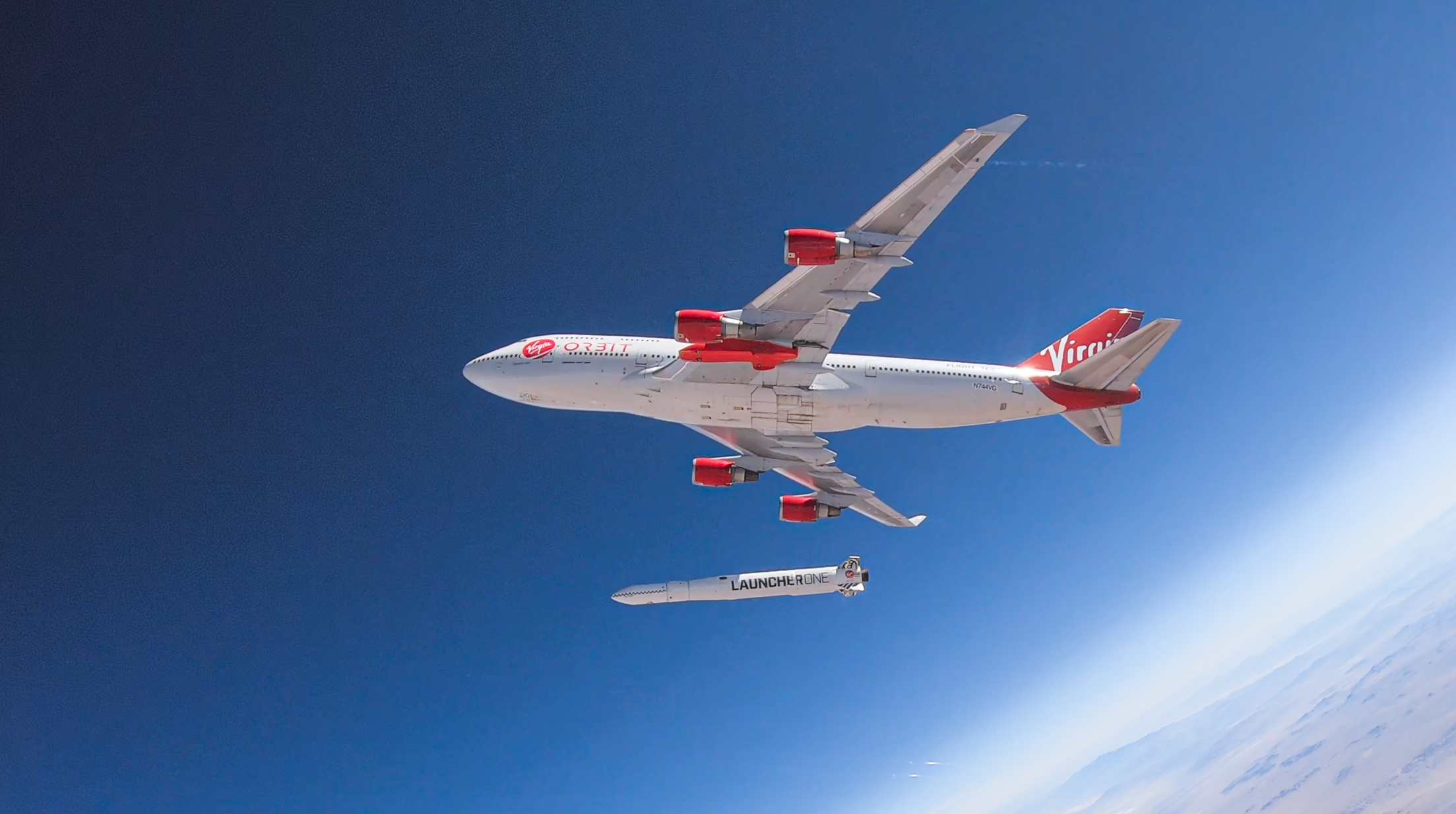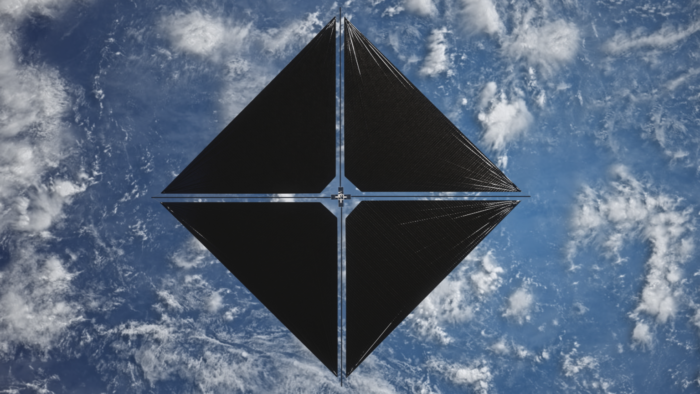The base for Spaceport Cornwall/Virgin Orbit space satellite launches, Cornwall Airport, Newquay is the primary commercial Airport for Cornwall, United Kingdom that was opened in 1933 as a civilian facility.
However, instead of launching vertical rockets from the site like, say, in Cape Canaveral, Florida, or the Baikonur Cosmodrome, Kazakhstan, Spaceport Cornwall uses converted aircraft to carry rockets up to 10.7 km before detaching and launching them into space.
Spaceport Cornwall will be one of the seven launch sites in the UK, joining three more horizontal and two conventional vertical rocket launch facilities currently being built, meaning the UK space race is now on.
Sadly, Virgin Orbit’s maiden mission failed last month after the rocket experienced an anomaly. Yet, that will not stop Spaceport Cornwall, Virgin Orbit and the UK space industry from developing further.
According to Ian Annett, Deputy Chief Executive at the UK Space Agency, the global value of the space economy is somewhere in the region of USD 360 billion, which is USD 20 billion (GBP 16.5 billion) every single year to the UK, as reported in a BBC News story last week.
Now that is a lot of money.
Usually home to small aircraft, Newquay Airport has now become the first functioning spaceport in the country, as private enterprises will take advantage of its runway, which is one of the longest in Britain and ideal for an innovative method of satellite deployment via a rocket called LauncherOne, courtesy of Virgin Orbit.
Unlike any ordinary rocket launch, this converted Boeing 747 jumbo jet carries a rocket underneath its wing, which has nine microsatellites inside the spacecraft. Taking off from the Newquay Spaceport, the Boeing 747 flies out over the Atlantic and ascends to an altitude of 10.7 km where the rocket detaches and blasts off to the edge of space to deliver payloads.
Cosmic Girl
Granted exclusive access on board the Boeing 747 called “Cosmic Girl”, the BCC went aboard the aircraft that used to be a Virgin Atlantic airliner and which has been specially modified to launch rockets.
In the past, Cosmic Girl’s cabin would have been filled with rows and rows of passenger seats as well as galleys and bulkheads — even a bar on each aircraft. But not now. All of that has been stripped out to save weight because to launch a rocket in this way, saving weight is really important.
“When we get airborne from the runway behind us and head out to what’s called a racetrack — that’s the point we’re going to drop the rocket — that phase is called captive carry where we’re really just looking after the rocket, making sure it’s healthy using the launch engineers in the back and mission control on the ground,” said Cosmic Girl’s pilot, Squadron Leader Matthew “Stanny” Stannard, on loan to Virgin Orbit from the Royal Air Force.
Having already played a role in three successful rocket launches from Cosmic Girl over the Mojave Desert in the United States, Stannard explained that from there the crew commence a build-up of about 2G so that if you were a passenger on the aeroplane, you would feel being pushed down just slightly in the seat as the aircraft goes to about 35 degrees nose up.
“And what we’re doing there,” Stannard continued, “is trying to transfer energy from the aeroplane to the rocket. By us going for that, the moment the rocket comes off it’s already heading where it wants to go and is not wasting any fuel. When we get to about 35 degrees nose up to the right speed, the copilot will press the button to release the rocket.”
At that point, Stannard said, the aeroplane falls away to the right-hand side and the rocket heads into space.
Portable System
“Our system is portable. It’s an aeroplane with a rocket and a few skids with equipment on it, so we can move it anywhere, we can enable space launch anywhere with an airport that can handle a 747,” said Dan Hart, CEO at Virgin Orbit.
Hart also mentioned that the UK space industry is a growing economy and that the UK has been one of the leaders in small satellites, which is actually where the satellite market has drifted to.
Some would argue, however, that what is happening down on terra firma with the cost of living crisis, the war in Ukraine and the political crises going on around the world, why should governments and people be concerned with what is going on in space?
Climate Concerns
Hart’s response was directed toward the climate change argument:
“If you’re looking at, for instance, the discussion about climate change, how do we know about climate change? Because we’ve seen from space changes in Earth’s atmosphere. We can detect chemical compositions. We’re looking at where the pollution sources are now. Methane is now being detected for the first time.”
Cosmic Girl is obviously changing the way that satellites launch into space. The spaceport in Newquay could also change the economy in Cornwall for the better, reports the BBC, as the local council has invested some USD 6.8 million (GBP 5.6 million). Overall, the Spaceport has a USD 24.2 million (GBP 20 million) price tag, though it could be a gamble for an area where mining and fishing were the traditional industries now replaced by tourism.
Economic Impact
“We’re creating 150 direct jobs related to this amazing facility that we’ve built here at Spaceport Cornwall. And we plan to create another 240 jobs in the supply chain. And this is a high-tech, futuristic innovative sector, so we’re trying to bring a new industry to Cornwall to develop jobs in a new way and develop the skills base as well,” said Melissa Thorpe, Head of Spaceport Cornwall.
“The low Earth orbit economy, as I describe it, is definitely one that is growing,” said Ian Annett, Deputy Chief Executive at the UK Space Agency. “There were 1,700 small satellites launched into low Earth orbit last year.”
Though the January launch wasn’t a success, Virgin Orbit’s next launch will be back over the Mojave Desert. The company is currently investigating what went wrong in the skies above the UK, with the company stating it hopes to attempt another UK launch later this year.
Whatever happens, Spaceport Cornwall and the other vertical and horizontal British rocket launch sites under construction make it an exciting time for the space industry in the UK.
Featured image: Cosmic Girl releases LauncherOne mid-air for the first time during a July 2019 drop test. Credit: Virgin Orbit/Greg Robinson.
If you found this article to be informative, you can explore more current space news, exclusives, interviews and podcasts here.
Share this article:






